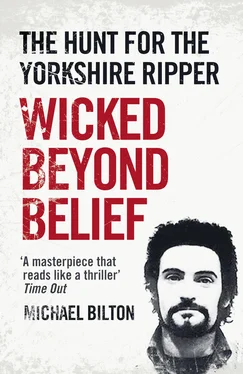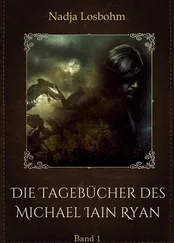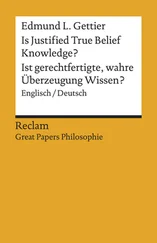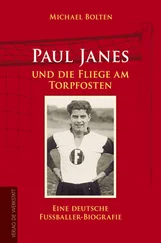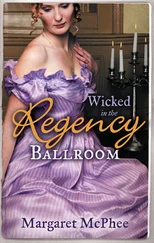Once amalgamations had taken place, the actual moulding of large new forces from smaller ones carried sizeable headaches in terms of management. Some towns had given their constables special rights. For example, in Huddersfield Borough a constable could not be moved from his home without his consent. Many a police officer, either buying his own home or firmly settled with a young family in a police house, refused to be uprooted and sent to the other side of the county. West Riding officers were used to being moved, but those in the towns and cities were familiar with their back yard and had got used to it. There were other privileges. Huddersfield being a textile town, officers had uniforms made of specially woven cloth, dyed and finished in police indigo blue – top quality worsted – a reflection of the predominance of wool merchants on the local watch committee. Pride dictated that their officers be dressed in the best cloth – and the uniforms were tailor made. ‘Then we went into the West Riding,’ said one who went on to become a senior detective, ‘and it was like the army, they got the nearest bloody size. There were only two sizes – too big and too small.’
The Leeds City Force of Hoban and his colleagues, with a strength of 1,300 men, was already bigger than some of the newly amalgamated county forces like Cumbria, Wiltshire, Suffolk and Dorset. Plenty of policemen and politicians in Leeds and nearby Bradford wanted the two cities to combine into one large metropolitan force instead of being lumped together with the rest of West Yorkshire. The ever-expanding Leeds–Bradford conurbation is such that the two are for all practical purposes virtually joined together, separated only by a small tract of land; even the local regional airport is called Leeds–Bradford, though each city retains its separate identity.
Hoban’s move to the Wakefield HQ, and later to Bradford as No. 2 in the force Criminal Investigation Department, was greeted with some dismay by his close colleagues, who believed he should have got the top job. Privately they blamed inter-force politics. The chief constable was West Riding; his deputy came from Leeds. The retiring assistant chief constable (crime), Donald Craig, was a West Riding man. So was George Oldfield, who had been deputy ACC (crime) and was now being moved up a rank. When Oldfield was named it raised hackles, not least because he had upset a good number of Leeds detectives during the 1960s when he carried out an investigation into alleged police corruption in the city. To put it mildly, Oldfield had trampled over a lot of city officers to get to the truth. Hoban wasn’t involved, but it may not have been internal politics alone which affected his future career prospects.
Hoban was seen as an officer possibly destined for promotion. Indeed, he himself seriously considered applying for an ACC position. His energy and enormous operational experience as the deputy coordinator of the Regional Crime Squad, and subsequently as head of Leeds CID, had marked him out as the kind of senior man who might benefit personally from the amalgamation. West Yorkshire Metropolitan Police was now a force of 5,000 officers, making it one of the biggest in the country in terms of manpower. There was plenty of opportunity for good men to succeed. But Hoban was going to have to wait before being moved further up the promotion ladder. He needed greater management experience. Where paperwork – the bureaucracy of running a large team of officers – was concerned, his boredom threshold was very low. He frequently passed the buck to junior colleagues, sometimes dumping an in-tray of documentation on them with the words: ‘Sort that lot out – I’ll be back later.’
Brilliant detective he may have been; skilled at administration he wasn’t. Virtually his entire career had been at the sharp end of detective work: feeling collars, making arrests, locking up criminals, and in the process earning twenty-nine commendations from judges, magistrates and senior officers. For this he had been awarded the Queen’s Police Medal (QPM) in 1974, a mark of great merit in the police service. ‘It’s for what you have done, rather than what you are going to do,’ said one of Hoban’s contemporaries.
Few of Hoban’s senior detective colleagues around the country at that time had received the QPM, and in 1975 another honour came his way – an award for gallantry, the Queen’s Commendation for Brave Conduct. Alerted by a blackmailer’s phone call that a bomb had been planted in the Leeds city branch of Woolworths, Hoban went immediately to the scene. The blackmailer had demanded £50,000 for revealing the whereabouts of the explosive device in the packed store. Staff and shoppers were quickly evacuated and a suspicious holdall was discovered in the toilets, placed on top of the cistern. Inside were explosives and a timing device. A fire brigade hosepipe was placed inside the room and Hoban proceeded to stand on top of the toilet seat and reach with one hand into the bag and hold the device while detaching two wires with the other. Hoban thought there was about twenty minutes left before the device went off, and he knew the bomb disposal squad could not reach Leeds from Catterick in time. He disconnected the wires from the battery before the army arrived, so defusing the device.
It was a typical piece of reckless heroism, for which he was named Leeds’ first Citizen of the Year by the Junior Chamber of Commerce. But it gave Betty nightmares. She had been on at him to retire as soon as he completed his thirty years’ service. Betty grew resentful, which added to the constant stress she felt about the way Dennis had put his job first throughout the whole of their married life. He never took off the time due to him and frequently worked a fourteen-hour day or longer. She would often say: ‘Please don’t go in today’ – but some inner compulsion clearly made him put his job first. On the few occasions when they did get the chance to go out together, there would be a telephone call and Betty would be left high and dry. They could never plan a proper holiday. And when they did go as a family to Scarborough with their two sons, after three days away from the job, Dennis needed to get on the phone. According to his son, Richard, many years later: ‘It was as if he was suffering withdrawal symptoms.’ ‘If we got to Christmas Day and we got as far as Christmas dinner, he would have to go to the office for a couple of hours.’
Hoban loved his family, and the feeling was mutual, but always, always in the eyes of his wife and two boys, the job came first. Richard Hoban remembers being carried in his father’s arms at the age of three on a family shopping trip in an arcade in Leeds when they witnessed a jewel robbery. ‘I was slung into the arms of my mother and off he went, hurtling after this jewellery thief and caught him. It was the last we saw of him for several hours.’
At home, Richard, his brother David and their mother would become Hoban’s telephone answering service, which included taking messages from informants. ‘We would be “Leeds 66815” – the number is etched on my memory. The snouts would say: “Is that Richard? Tell your dad something’s going to happen, tell him to get in touch with me and it will cost him ten bob or a couple of quid or whatever.” Occasionally you’d get someone ringing up who’d crossed my Dad’s path at some time and they’d tell me what they were going to do to me or David or my mother.’ As well as the household’s phone being used in the fight against crime, the family blue and white Triumph Herald was used to chase criminals. Once Hoban crashed it into a bridge trying to stop someone escaping his clutches.
He loved being where the action was: nabbing villains, being involved in car chases, arresting criminals at an armed bank robbery. Even at the rank of detective superintendent, as the deputy coordinator of the regional crime squad a decade earlier, he made sure he was at the sharp end, posing undercover as a taxi driver complete with cap when a notorious gang was under surveillance. The gang had him drive from Leeds to Grimsby via a nightclub in Doncaster. He had to decline an invitation to go into the nightclub, because the moment the gang got out of the vehicle it was commandeered by a group of drunken sailors who wanted to be taken back to Grimsby. He then returned and collected the gang when they had finished drinking. Later the undercover squad of detectives, secretly guarding Hoban, were treated by him to a night out on the proceeds of the fare for the long trip, paid by the gang. He wasn’t exaggerating when he told a journalist: ‘It’s more than just a job – coppering is a way of life, a hobby, everything – I wouldn’t swap it for anything.’
Читать дальше
